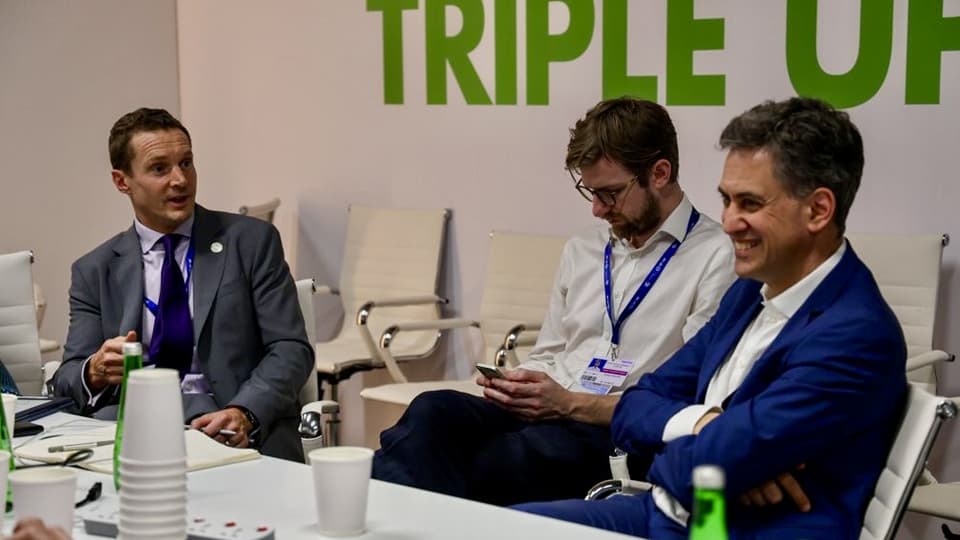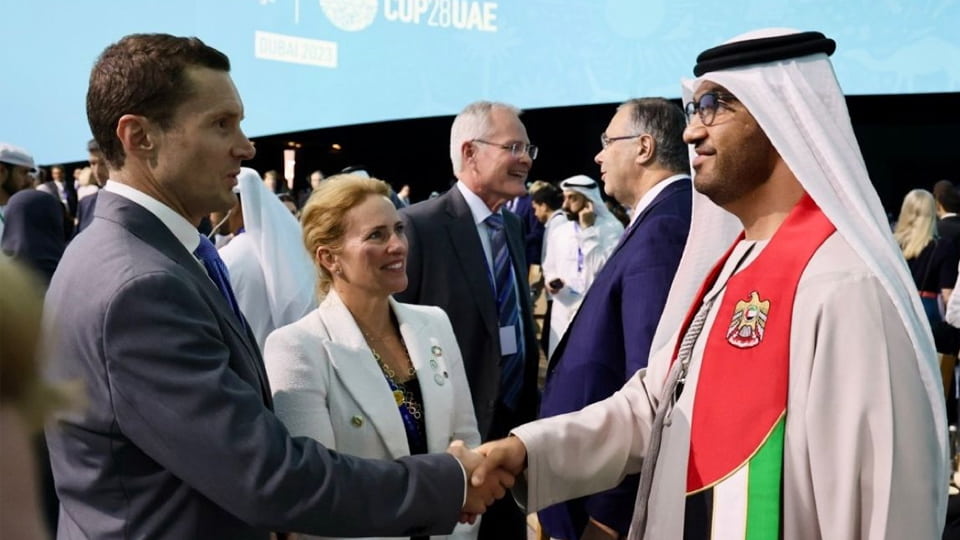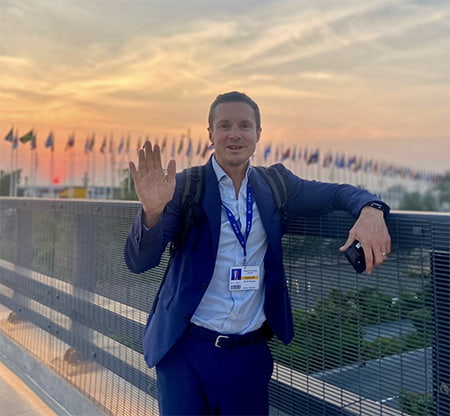Bruce Douglas is the CEO of the Global Renewables Alliance (GRA), an organisation representing the global renewable energy sector. The organisation works to establish, communicate and drive action by working with governments, corporations, investors, and more. Current corporate partners include Iberdrola, Google, and EY.
The Global Renewables Alliance launched “Double Down, Triple Up” in September 2023, a campaign that saw great success in bringing together the private sector, civil society and climate diplomats to issue a unified call to world leaders to commit to a target at COP28 to triple global renewable energy capacity by 2030. That target was agreed and endorsed by UN nations at COP28.
There is always more to be done. The organisation has since launched “Now Deliver Change” to call on world leaders to seize the opportunity to achieve the triple renewable energy goal within the next five years.
We asked Bruce about how the organisation is working with governments and corporate organisations to support the journey towards tripling global renewable energy capacity by 2030. He said:
“The Global Renewables Alliance is the international voice representing wind, solar, hydro, geothermal, storage, green hydrogen and grids. Our main target audience for accelerating the energy transition are policymakers, at multilateral level, but also in-country, focused mainly on emerging markets and developing countries.
“As part of our advocacy strategy, we organise high-level government engagement meetings with private sector and investor representatives and also develop communications campaigns to raise awareness and spread the main messages. Governments are starting to move from asking ‘why do renewables?’ to ‘how do we do renewables?’.
“Although renewable energy is breaking installation records around the world every year, we are still far off track from tripling the capacity by 2030. All countries need to dramatically increase the deployment in order to reach the required 11,000 gigawatts.”
Leading the charge, as CEO Bruce is a real ambassador for change. Passionate about renewables since the late 1990s when he saw wind turbines lining hillsides in Spain, his career has been centred on this mission. Commenting on being recognised as a TIME100 Climate Leader, Bruce added:
“Very humbling, considering who else got the award, but it really does help me raise awareness for the need to increase renewable energy.
“The award has my photo on it – but it is really a recognition of all the amazing teams I have worked with on renewable energy over the last 25 years, starting with Professor Leon Freris at Loughborough University back in 2000. And for anyone pushing for the hashtag#3xRenewables goal.”
Looking ahead at the challenges and at what’s next, Bruce said:
“The ‘Time 4 Action’ campaign outlines four areas where policy shifts are most urgently required to unleash the renewables revolution. Action on finance, permits, supply chains and grids are urgently required to deploy 11,000 renewable gigawatts by 2030.
“Global commitments need national plans and urgent implementation. It is Time 4 Action. Governments should be congratulated for collectively making the significant pledge to triple global renewable energy capacity, double energy efficiency rates by 2030, and transition away from fossil fuels. This sends a very positive and powerful signal.
“We have the technology: Wind and solar power are now mature and cost competitive in most markets. But time is running out. Despite record-breaking growth in renewable capacity, deployment is still way too low. There is now an urgency to translate the global commitments into national plans, investment strategies, and local implementation to mobilize the required investments and deliver on our targets.
“GRA’s policy agenda ‘Actions to Deliver 3xRenewables by 2030’ outlines the core actions needed to achieve the global renewables target.”
 Bruce with the Labour Party’s Ed Miliband (UK)
Bruce with the Labour Party’s Ed Miliband (UK)
Bruce’s organisation collaborates with the Climate Compatible Growth group, one of the University’s flagship projects in terms of its contributions to addressing global challenges associated with climate change. Bruce told us more about the group:
“The GRA works closely with CCG as a consortium partner in the Green Grids Initiative (GGI). We help coordinate international action and mobilise technical expertise and financing to accelerate the development of green grids necessary to meet net zero commitments. There is no transition without transmission.
“CCG’s expertise and wide network are instrumental in developing and deploying knowledge and understanding to new markets. It is a pleasure working alongside world leading experts like Professor Mark Howells and Professor Jairo Quiros-Tortos.
“GGI focus on three thematic pillars: Finance, Permitting and Supply Chains.”
Bruce gained his master’s degree in Renewable Energy Technology Systems in 1996, commenting:
“Loughborough University was the leading course in the world and was the obvious choice. It was an incredible powerful learning experience and strengthened my belief in the importance of a secure, clean and just electrified future powered by renewables.”
Having pursued his dream career, he offered advice to those interested in renewables:
“Go for it!!
“Renewable energy is one of the major growth areas of the 21st century. There are enormous career opportunities in the sector from engineers and financiers to policy experts and communicators. It is truly one of the sectors that requires all disciplines.
“I have always been convinced that it is the only way to power the world in a sustainable way and it is incredibly rewarding and impactful beyond just a career and salary.”
About the University’s Climate Compatible Growth (CCG) programme
CCG is a Foreign Commonwealth and Development Office (FCDO) funded project. It is one of the University’s flagship projects in terms of its contributions to addressing global challenges associated with climate change, aligning firmly with our Climate Change and Net Zero strategic theme. The team’s work is leading to transformative and innovative approaches that unlock finance that drives investment in, for example, electricity networks, grid decarbonisation and low carbon transport. These investments ultimately improve lives and livelihoods and are a catalyst for reducing inequalities and tackling poverty in communities.
For example, since their establishment, CCG has created Starter Data Kits for more than 70 countries, equipping partners, consultancies, national investment analysts and academics with essential data to inform national decarbonisation strategy development. The Kenyan and Ugandan governments are also now using CCG planning tools to develop their long-term national energy strategies.
Find out more about Global Renewables Alliance.

